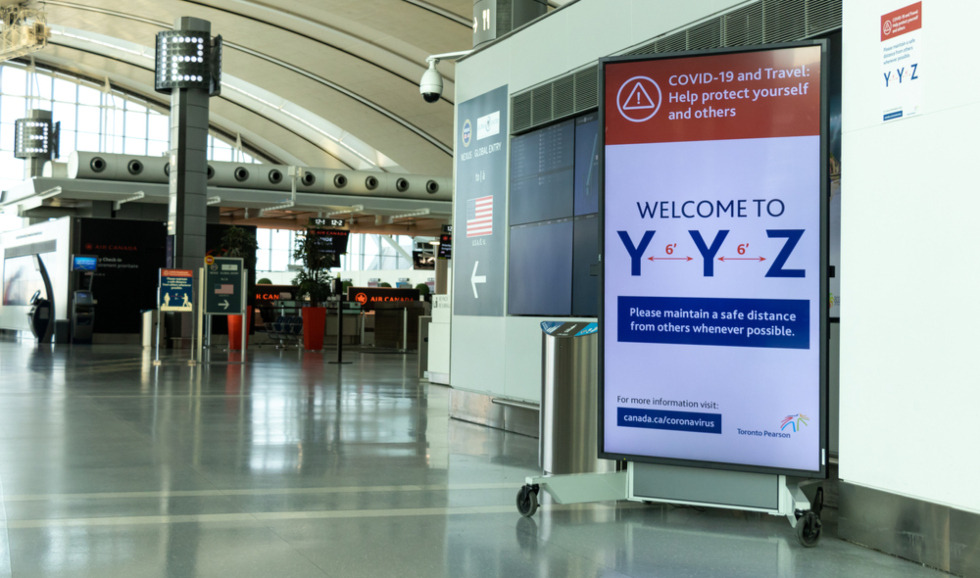Government of Canada awards $2.5M to McMaster University to support the COVID-19 border study with McMaster HealthLabs

October 30, 2020
McMaster University has been awarded $2.5 million from the Government of Canada to support the McMaster HealthLabs (MHL) Canadian International COVID-19 Surveillance Border Study at Toronto Pearson International Airport.
The MHL study began in September 2020 and was established to gather data on COVID-19 rates of incoming international travellers to help determine if an airport-based surveillance program is feasible, to determine whether self-collection of COVID-19 testing is effective, and to explore options regarding the 14-day quarantine for international travellers.
The funding is provided through a partnership between Health Canada and the Canadian Institutes of Health Research.
“We welcome the support and funding from the Government of Canada for this important COVID-19 research initiative,” said Dr. Marek Smieja, MHL scientific director, co-principal investigator of the Border Study and a professor of pathology and molecular medicine at McMaster.
“This support will allow us to complete our follow up and analysis with a globally unique data set of passengers tested for COVID-19 three times during 14 days of quarantine and acknowledges the public health interest and potential impact of our study,” he says.
The MHL Border Study, which is also funded by Air Canada and the Greater Toronto Airport Authority (GTAA), will inform Canada’s potential strategies for border surveillance at airports and other points of entry.
“I want to congratulate Dr. Smieja and the whole team at McMaster HealthLabs, which stepped up quickly to work with universities, businesses and other partners to develop and test solutions to curb the social and economic impacts of COVID-19,” said the Honourable Filomena Tassi, Minister of Labour and Member of Parliament for Hamilton West-Ancaster-Dundas.
“Their work is another shining example of McMaster University’s leadership and commitment to addressing challenges facing Canadians.”
Karen Mossman, McMaster’s vice-president of research, recognized Health Canada and CIHR for its strategic investment, acknowledging the potential impact of the team’s work.
“This funding is a direct reflection of McMaster’s reputation as a leader in infectious disease research and trusted partner in the delivery of evidence-based results,” she said. “Under Marek’s leadership, this study holds the promise of improving the physical, mental and economic health of Canadians.”
“The Border Study will offer valuable insights into large-scale airport surveillance testing – from the feasibility of self-collected nasal-oral samples, to the logistics of testing, transportation and communication for so many travellers. We believe our findings will inform public policy not only in Canada, but around the world,” said Jack Gauldie, MHL’s board chair and scientific director of The Research Institute of St. Joe’s Hamilton, where the laboratory testing methods for this study were developed and performed by Dr. David Bulir.
The study is being conducted in accordance with research ethics board-approved scientific protocols. Consenting participants provide a sample to MHL researchers before leaving the airport and then supply two additional samples self-collected at seven and fourteen days after arrival, coinciding with Canada’s current quarantine period.
An independent analysis of Border Study data will be conducted at the Dalla Lana School of Public Health at the University of Toronto under the supervision of the principal investigators Dr. Marek Smieja and Dr. Vivek Goel.
An interim report of study findings is expected to be released mid-November.
McMaster HealthLabs is part of the university’s Global Nexus for Pandemics and Biological Threats, which is an international network of scientists, clinical health and medical specialists, engineers, social scientists, and other experts working collaboratively to prevent future pandemics and mitigate global health threats.


